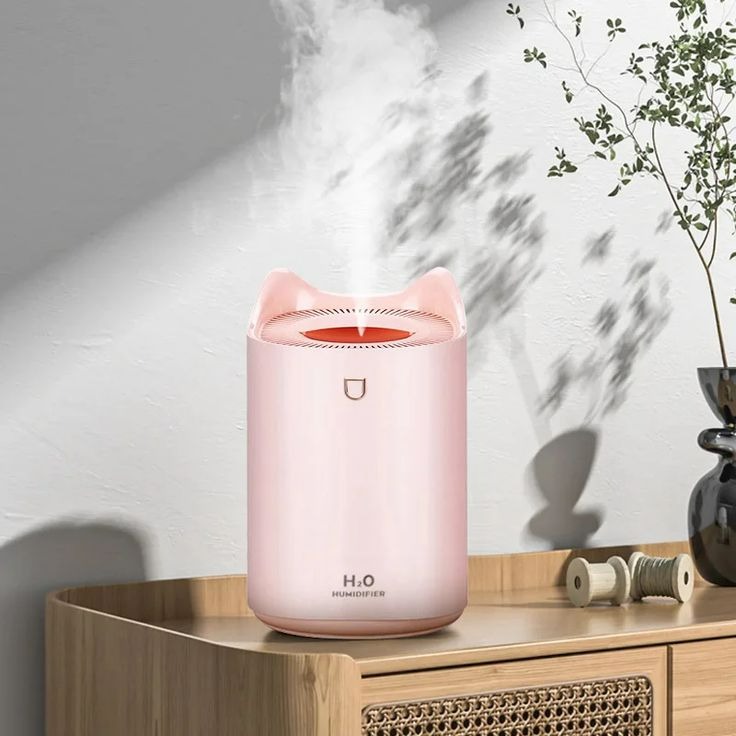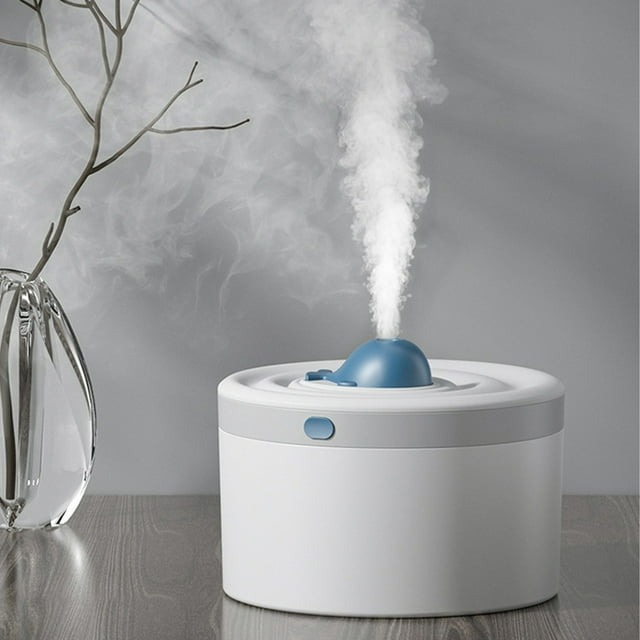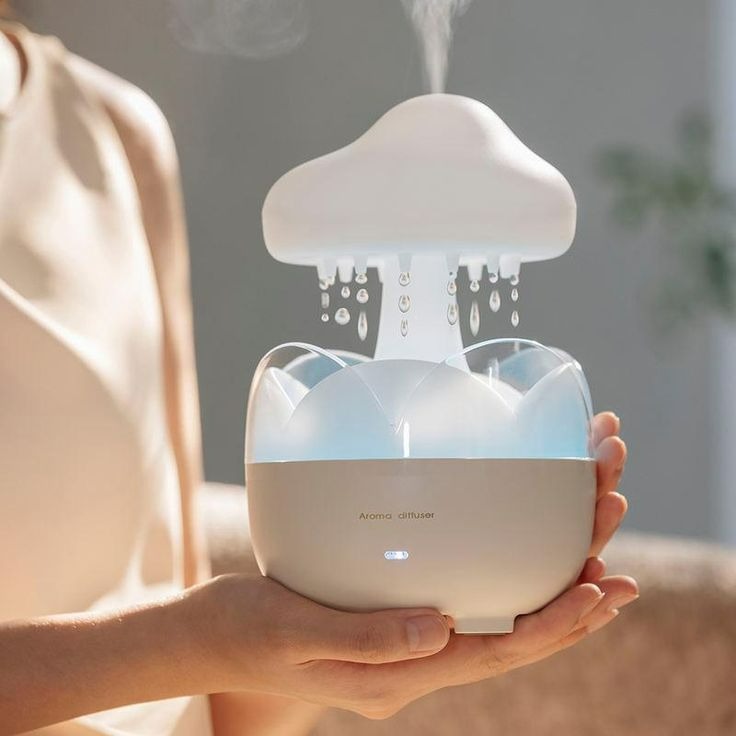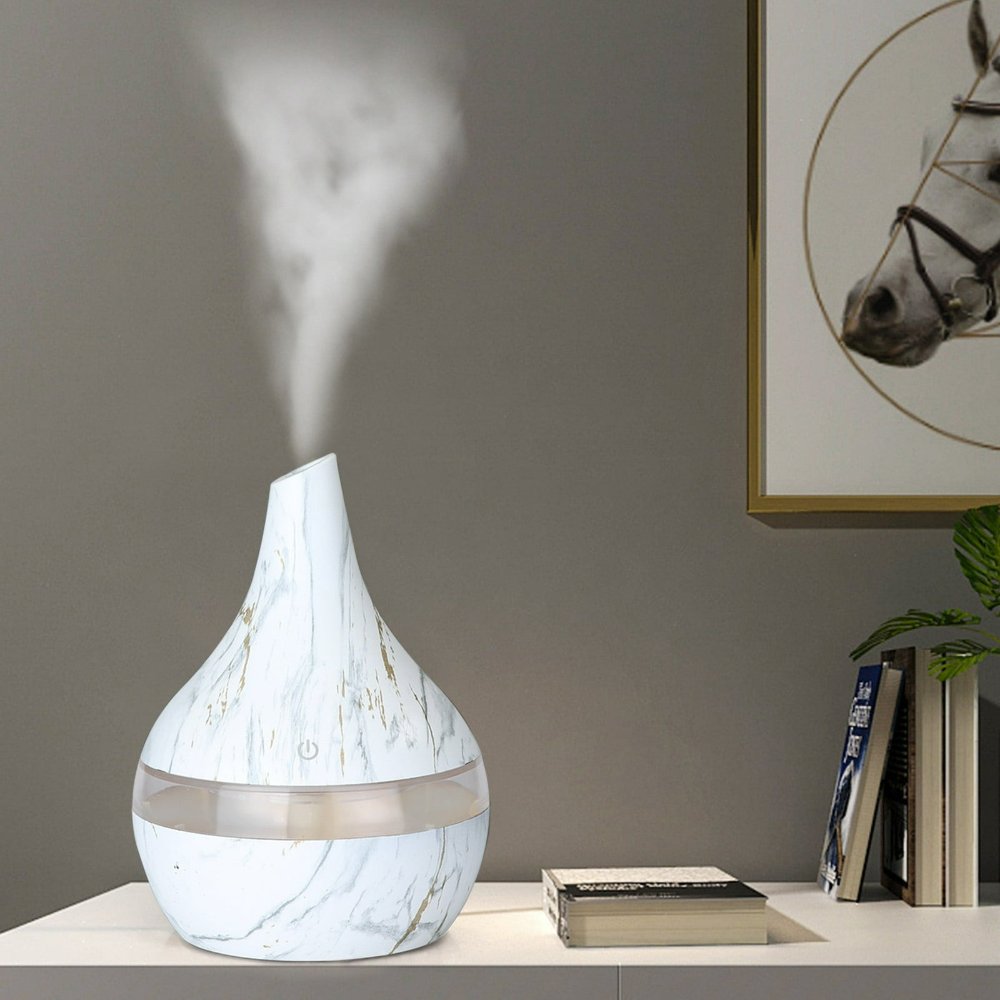How a Humidifier Can Help Alleviate Cough Symptoms
When dealing with a pesky cough, moisture in the air can be a game-changer. A humidifier for cough works by adding water vapor to the air. This helps to ease the discomfort of a dry throat. In turn, it can reduce the urge to cough. Here are some ways that a humidifier can assist in soothing cough symptoms:
- Moisture soothes the throat: Dry air can irritate your throat lining, making your cough worse. A humidifier keeps the throat moist, your cough less irritable.
- Eases breathing: Humidified air can help clear congestion in your nasal passages. Breathing becomes easier, and coughing fits can decrease.
- Prevents dryness: By maintaining a steady level of humidity, it avoids the dryness that can lead to coughing.
For many, a humidifier becomes a key part of managing their cough, especially in dry climates or during the winter months when indoor air tends to be drier. It’s essential to find the right balance of humidity, as too much moisture can cause issues of its own, like the growth of mold or mildew.

The Different Types of Humidifiers and Their Benefits
When choosing a humidifier for cough relief, it’s important to understand the different types available. Each type offers unique benefits that can cater to your specific needs. Here’s a quick overview of the most common types of humidifiers and the benefits they offer:
- Cool Mist Humidifiers: These emit a cool vapor into the air and can cover large areas. They are ideal for reducing coughs that worsen with dry air. The cool mist is also safe to the touch, making it a good choice for households with children.
- Warm Mist Humidifiers: Warm mist variants release a heated vapor that can soothe the throat quickly. They are excellent for immediate comfort and can assist in loosening mucus. However, due to the heat, they might not be as suitable for children’s rooms.
- Ultrasonic Humidifiers: These use ultrasonic vibrations to create a fine mist. They are usually quiet and efficient, suitable for bedrooms or offices. Both cool and warm mist options are available.
- Evaporative Humidifiers: Working through the natural process of evaporation, these humidifiers blow air through a moistened filter. As air passes through the filter, it absorbs moisture and then circulates this humidified air into the room.
- Steam Vaporizers: These are electrically powered devices that heat water to create steam, which cools slightly before leaving the machine. Steam vaporizers can be more hygienic as the boiling process kills germs.
Each type of humidifier for cough delivers moisture to the air, which can help soothe irritated throats and ease coughing. However, it’s crucial to choose the right one based on your comfort, the size of the room, and safety considerations. Remember to maintain a balance; excess humidity can be as problematic as dry air. Understanding these types will help you make an informed decision and find the best humidifier for your cough.
Choosing the Right Humidifier for Your Needs
Choosing the perfect humidifier for cough relief involves a few key factors. First, consider the room size. Large rooms may need cool mist humidifiers for wider coverage. Small spaces could benefit from warm mist or ultrasonic humidifiers for focused relief.
Next, think about who will use it. If children are around, safety comes first. Choose cool mist options to avoid burns. Ultrasonic humidifiers are also great because they are quiet and won’t disturb sleep.
Consider the maintenance involved. All humidifiers need regular cleaning, but some are easier to maintain than others. If you’re busy, look for options with simple cleaning steps.
Also, look at additional features. Do you want a humidistat for automatic humidity control? Would you like a device with a night light or essential oil diffuser? It’s all about what fits your lifestyle and needs.
Finally, think about your budget. There’s a range of prices, from affordable to high-end models. Decide how much you’re willing to spend for comfort and cough relief.
By keeping these points in mind, you’ll find the best humidifier to ease your cough and enhance your indoor living space.

The Importance of Humidity Levels in Managing Cough
Maintaining the right humidity levels is crucial in managing cough. If the air is too dry, your throat can become irritated, leading to more coughing. Conversely, too much humidity can allow mold and other allergens to thrive, which might also worsen cough symptoms. Striking the right balance is key.
Indoor humidity levels should stay between 30% to 50%. This range helps soothe the throat and maintain clear nasal passages. A humidistat can help monitor these levels. Staying within this range prevents throat dryness and reduces the urge to cough.
In dry climates or during winter, humidity levels often drop. This can make coughs worse. Using a humidifier for cough relief can add needed moisture to the air. On the other hand, in more humid climates, a dehumidifier might be needed to maintain the right environment for cough relief.
It’s important to adjust the settings on your humidifier according to current room conditions. This ensures you’re always at the optimal humidity for cough management. Regular checks and adjustments can make a big difference in finding comfort and relief from coughing.
To sum up, understanding and controlling humidity levels are essential for managing coughs effectively. With the right humidifier for cough and careful monitoring, you can create a comfortable environment that helps ease cough symptoms.
Maintenance and Cleaning Tips for Humidifiers
Proper maintenance and cleaning are crucial for the effectiveness of your humidifier for cough relief. Here are some tips to keep your humidifier in top condition:
- Empty the tank daily: Prevent mold growth by emptying the water tank every day. Refill with fresh water.
- Clean regularly: Wipe down the inside of the tank at least once a week. Use a soft cloth and a mild, non-abrasive cleanser.
- Descaling: If you have hard water, mineral buildup can occur. Use a descaling agent or white vinegar to break down these deposits every 2-3 weeks.
- Change filters: Follow the manufacturer’s instructions for filter changes. This can vary based on humidifier type.
- Dry it out: Before storing, make sure the humidifier is completely dry. This prevents mold or bacteria from setting in.
- Use distilled water: This can reduce mineral buildup and keep your unit cleaner for longer.
By following these simple maintenance steps, you can ensure that your humidifier for cough is effective and hygienic. Remember, a clean humidifier means cleaner air and better cough relief.

The Role of Humidifiers in Comprehensive Cough Treatment
When you’re crafting a cough treatment plan, a humidifier for cough is a vital component. But how does it fit into the bigger picture of cough care? Let’s look at the role humidifiers play in a comprehensive approach to treating coughs.
- Improves air quality: A humidifier adds moisture to the air, creating a more comfortable breathing environment.
- Works with medications: If you’re using cough syrup or throat lozenges, a humidifier’s moisture can make these more effective.
- Complements rest: Good humidity levels can make it easier to rest and recover, which is essential in overcoming a cough.
- Aids in hydration: Keeping the air moist helps keep your throat and nasal passages hydrated, which is crucial when you’re fighting a cough.
- Reduces irritants: By maintaining optimal humidity, you can lower the presence of irritants that can cause coughing.
Remember, while a humidifier for cough is a key tool, it’s one part of a larger strategy. Adequate hydration, proper rest, and possibly medication are also important. Use your humidifier as a part of your overall health plan to fight coughs effectively.
Precautions When Using a Humidifier for Cough Relief
Using a humidifier for cough relief can be very effective, but it’s important to take certain precautions to avoid any complications. Here are some key safety tips to consider:
- Avoid over-humidification: Excess moisture can encourage the growth of mold, bacteria, and dust mites. Keep indoor humidity levels in check, ideally between 30% and 50%.
- Position the humidifier correctly: Keep it at least a few feet away from your bed and on a flat, waterproof surface. This prevents moisture accumulation on bedding, which can cause dampness and potential growth of mold.
- Use clean water: Always fill your humidifier with distilled or demineralized water to minimize the spread of minerals and impurities in the air.
- Keep it out of reach from children: Make sure the humidifier is in a safe location where children cannot tip it over or risk burn injuries, especially with warm mist humidifiers.
- Regularly clean the unit: Stick to a cleaning schedule to prevent any harmful buildup. Neglecting maintenance can lead to the emission of harmful particles into the air.
- Monitor for white dust: If you notice white dust, it may be a sign of mineral deposits from hard water. Switch to distilled water or use a demineralization cartridge.
- Watch for signs of increased allergy symptoms: If your allergies seem to get worse, it may be due to the humidifier. Clean it thoroughly and check if it improves your symptoms.
By following these precautions, you can safely use a humidifier for cough relief and ensure that you’re getting the benefits without risking your health or the cleanliness of your home.
Additional Tips for Managing Cough Beyond Humidification
While humidifiers for cough are essential, there are other strategies to manage cough symptoms effectively. Here’s a snapshot of additional measures you can take:
- Stay Hydrated: Drink plenty of fluids to keep your throat moist and help thin mucus.
- Practice Good Hygiene: Wash your hands regularly to avoid spreading germs that can worsen coughs.
- Use Saline Nasal Sprays: These can help clear congestion and make breathing easier.
- Avoid Irritants: Smoke, strong odors, and pollutants can aggravate coughs.
- Consume Honey and Lemon: A tablespoon of honey with lemon can soothe the throat. (Note: Honey is not for children under one year old.)
- Rest Well: Ensure you get enough sleep to support your immune system.
- Take Cough Medicine: Over-the-counter cough suppressants may provide temporary relief.
- Follow a Balanced Diet: Eating well supports overall health and strengthens your immune response.
- Seek Medical Advice: If your cough is persistent or severe, consult a healthcare professional.
Combining these tips with the use of a humidifier for cough can provide comprehensive relief and contribute to a healthier indoor environment.
